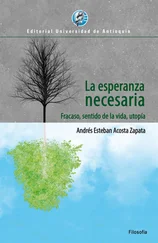“What about you, princess, what’s your name?”
“Tomás.”
“Tomás,” Rivero repeated.
“Yeah. Tomás.”
“Ever had your dick sucked,Tomás?”
He looked down, clenched his jaw, and when he turned back to Rivero, he squinted his eyes as hard as he could. They were almost to the dock.
“Once.”
“Once?”
“Yeah.”
Suddenly he felt a huge hand clamp down on his neck from behind. It was Rivero, and his hand was a show of force. He wrenched away in pain.
“Don’t lie to me, faggot. I know perfectly well when I’m being lied to.”
Then he smiled.
Two full weeks of vacation remained. He felt that calm euphoria of having won something. At home he became sullen, presumptuous, independent. He’d see his parents and Anita, and they were sort of distant, irritating figures. He no longer bothered to smile. When he was with them, he was a little absent (“Son, you’re unbearable this summer.”—Mamá), but he let them be, spent time with them when required and then took off as soon as he could, giving no other explanation than that he was going to the club. But he didn’t go to the club. He had the vague feeling — he could have called it happiness, but it was constantly contorting, changing shape and appearance — that a magnetic field had been erected around him. Six days had passed since he met the boys, and he’d gone to see them every single afternoon. He’d gotten to know them a little better and sensed between them an almost physical connection, as though they were all keeping a secret, or maybe more than one. Theirs was a solemn world, an adult world, but in certain things they were unable to avoid a few traits that had spilled over from childhood, as though they could only be adult at certain times or when doing certain things. He realized almost immediately, for instance, that they were nearly entirely oblivious of the future, and that in that regard he was far superior. They lived in a kind of exhausting, ever-repeated present. They usually went first to the dock and then into town. Their presence made the only commercial street in town even louder and more colorful. They lived there all year long and assured him that in the winter there wasn’t a soul around, which was almost hard to believe now, in summertime. They stole cheap jewelry and T-shirts and paper cones full of shrimp in an astonishingly natural way, and then left them half-eaten, or contemptuously tossed down whatever they’d taken. It wasn’t hard to steal, and in fact they seemed almost bored by it, which made it a fascinating spectacle. He himself had stolen on occasion — in the city, in small shops — and had always gotten wildly panicked about it. He had such an ingrained sense of possession that he was incapable of taking anything he didn’t really and truly covet. But these kids stole indiscriminately, in a confident and irrational manner, and they took the most absurd, useless objects. What’s more, they did it with extraordinary languor. They didn’t even pretend to be debating whether or not to buy something, and at times didn’t even bother to hide it before walking out of the store. Their movements were so forthright and unequivocal that the first time Pablo stole a pair of earrings in front of him, he was so casual that if anyone had asked about his friend on the way out, he couldn’t have said for sure whether or not he’d paid. He didn’t even revel in his success afterward. Instead he simply announced, “For Moni.”
“Whatever, man, you’re still not going to fuck her, even in your dreams.”
“We’ll see.”
And the way they talked about sex was the same as the way they stole. There was something novel about it, about their way of talking about sex, and not just because they were more precocious than he was. He had city friends who were more precocious than him, too, but their attitude was very different. Besides, he himself had had the chance to lose his virginity a few months earlier and had passed it up for lack of interest and because he just wasn’t that into the girl. Marcos, Pablo, Tejas, and Rivero talked about sex in a clinical, neutral way. Despite the fact that it was a constant and explicit topic of conversation, there was something underneath it that they were somehow avoiding. The girls they slept with lived in the same boxy houses as they did, and they’d slept with many of the same ones. They didn’t brag, but nor did they skip over embarrassing, even sordid, details. It was as though the act of fucking or being fucked were just that, as though it were simply a basic, vital thing, ever-present in the world of possibilities — a perpetual fervor, but one that had no object, or whose object was met by virtue of the act itself, only to then start up once again, unrelenting. Sex wasn’t sentimental — they didn’t talk about falling in love or about thinking about any one girl in particular, they talked about fucking, how bad they wanted to fuck, how long it had been since they’d fucked, Moni giving good head, Duli taking it up the ass, they remarked casually that they’d fucked Frani in her father’s pick-up truck (and once — Tejas — even Frani’s mother). All the girls had nicknames ending in i , and that seemed their only nod to sentimentality; everything else was relentless tension, risk. Fucking, getting fucked, there was no drama, no disobedience, no lying, they were not caught — as he and his city friends were — in a web of phony soulfulness, weren’t obliged to pretend; their tension came of something more painful, but also nobler, or at least that’s the way it seemed to him.
He started to feel he’d been lied to all his life. It wasn’t so much a concrete thought, more a strange sort of clairvoyance. He knew, too, that he’d never be like them, like Pablo, Marcos, Tejas, and Rivero, but he was happy enough to be liked by them and sensed they were proud to have him around, to tease him a little, but not cruelly. He felt like a bridge between two worlds; they felt like the pauper who somehow manages, one wondrous night, to sleep with a model.
“It’s one of the wonders of the world,” Aunt Eli said.
“What is?”
“The Eiffel Tower. I don’t want to die without seeing the Eiffel Tower.”
“Oh, please, Eli, it’s not like you’re going to die tomorrow.”
“You don’t know that, maybe I will die tomorrow. I’d like to see it, I’ve never traveled anywhere in my whole life.”
Aunt Eli made the first pronouncement with an alarming degree of authority and the second as though attempting to quell the tremors produced by the first. And then, ten minutes later, during the same dinner, “I’d have been happier married to a Turk.”
And then later still, while discussing how the ocean was warmer that summer than it had been other summers, “No one has ever loved me, my whole life.” (There ensued a deadly silence, followed by a pained come on, what are you talking about, Eli ? from his father.) Something about Aunt Eli had changed that summer, and that was the precise dinner that he noticed it — a sort of verbal toughness (she, who had never been tough about anything her whole life), as though she were trying to wrench things from her mouth, incomplete things, unfulfilled things, things that served no purpose but had been shut away in a sort of internal locker, a locker as large as her body.
“You have your family, your job in the city, you don’t know what it’s like, living in a small town, you don’t know a thing. This town is a graveyard.”
Then she turned to his father and to them, her expression calm, almost as though she were surprised or thinking why don’t any of you understand me ? and announced, “I used to be very pretty, do you remember?”
“Of course I remember.”
Читать дальше












